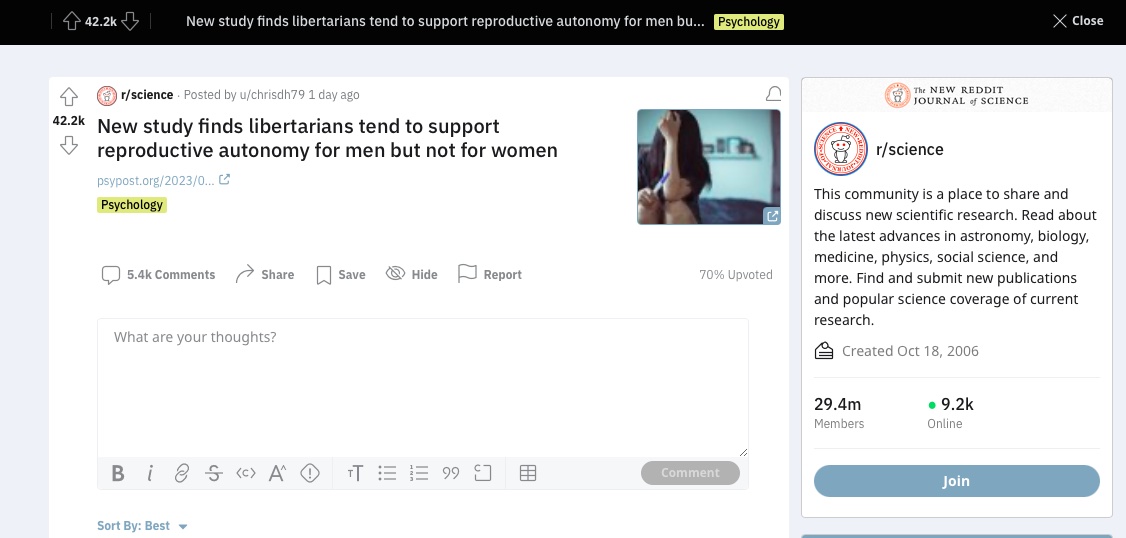Jocelyn Chalmers, PhD candidate and associate lecturer, recently published an article about libertarianism and abortion which really took off on social media.
Both abortion and libertarianism are concepts that illustrate the divide between abstract, philosophical ideas (e.g., freedom; morality; personhood) and the complexities that arise when you try to translate these abstractions into people’s real, complicated lives.
Since no society in our world today follows a strictly ‘libertarian’ governing model, it’s easy for libertarianism’s subscribers to suggest that prioritizing freedom (or their concept of it) above all else would lead to easy solutions for all of our problems – research like this allows us to interrogate that idea by highlighting that freedom is far from a simple concept in practice.
The research that went viral! Trending on Reddit with more than 40,000 upvotes and more than 5,000 comments.
To examine the link between libertarianism and attitudes about women’s reproductive autonomy, Chalmers and her colleagues conducted a series of two studies that presented a variety of different questionnaires to participants in a randomised order. The first study included 296 U.S. adults recruited through the online research platform Prolific. The second study sought to replicate the findings in a larger sample of participants recruited from social media. To this end, the researchers recruited an additional sample of 580 U.S. adults.
The researchers found that those who described themselves politically as “libertarian” were less likely to support a woman’s right to have an abortion. To assess support for abortion rights, the researchers asked the participants whether they believed “it should be possible for a pregnant woman to obtain a legal abortion” under seven different circumstances, such as “if the family has a very low income and cannot afford any more children.”
Libertarians were also more supportive of men’s right to deny their partner’s abortions and to remove their financial support for unwanted children. In other words, they were more likely to agree with statements such as “A woman should not be allowed to have an abortion if the man involved really wants to keep his unborn child” and “If a child is born against the father’s will, he should not be obligated to support the child financially.”
I think the average person should take away that the idea of ‘freedom’ that libertarians subscribe to, which sounds attractive and is often wielded by politicians as though it has a single objective definition, does not actually translate into straightforward policy prescriptions. This is particularly true in a world in which we are so interdependent on one another and in which those who tend to be in charge of both philosophising about these concepts and creating policies around them may be at least partially shielded from the messy realities of this interdependence due to a lack of experience with pregnancy, childbirth, and even interpersonal care work in general.
You can read the full article here.


